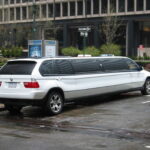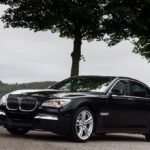JB1 vs. JB4: Differences and Comparison
Car enthusiasts are always looking for ways to enhance their engine’s power. To get an additional boost to your vehicle, tuning is a great option. Two notable tuners in the Volkswagen market are JB1 and JB4. If you are thinking about getting a JB1 or JB4 tuner, first you should know what piggyback tuning is and how it is different from flash tuning.
Further in this article, I will compare these two tuners, and you can decide which one is best for your car.
Piggyback Tuning Vs. Flash Tuning
Since both piggyback tuning and flash tuning alter the numbers that the Engine Control Unit (ECU) outputs, they may appear to be quite similar at first glance. However, both achieve their goals in distinctive ways.
In the case of flash tuning, the whole ECU’s data is replaced with a new programmed code, intended to increase performance. This gives you an advantage, you don’t need permanent hardware to be attached to ECU. You just need to connect ECU to a computer and upload a tune. Another advantage is the customization of various engine characteristics like valve timing, ignition timing, etc. However, there is a great disadvantage of flash tuning; overwriting the engine’s actual code will void your warranty. You may also end up damaging the ECU if the tune isn’t installed properly or there is a flaw in the program.
Now, if I talk about piggyback tuning, the functioning is different in this case. Instead of replacing the engine’s code, you plug an external hardware device into ECU. Until it is plugged in, it alters the performance. Once removed, the engine is back to its original running conditions.
Piggyback tuning doesn’t modify your ECU’s software; instead, it modifies the signals the ECU gets from the controller, tricking it into thinking it needs to produce more power than it does.
With some piggyback tuners like JB4, you get remote access to the engine mapping through an app. In addition, there’s no effect on the car’s warranty since no overwriting of ECU is done. Overall, piggyback is a great option for boosting the engine’s performance.
Also read: 10 Best 300 HP Cars for Less Than $20k
What are JB1 and JB4? A Brief Overview
The two notable piggyback tuners in the VW industry are JB1 and JB4. Both of them have been manufactured over the years by Burger Motorsports.
JB1 is the earlier version manufactured by Burger Motorsports. It was designed for vehicles like VW MK7 Golf GT, VW Mk7 Jetta GLI, Audi S1, Audi A3, and Skoda Octavia RS. It is a plug-and-play adjustable solution for all MQB-based vehicles of the Volkswagen and Audi groups. At the default setting, you get an additional 45 hp boost with JB1. In certain cases, this can go up to 90 hp.
The upgraded version of JB1 is JB4. Similar to the previous version, it is a plug-and-play-tuner for turbocharged vehicles. It comes with preloaded software and contains a total of 8 maps based on a variety of fuel modifications. You just install JB4 in between car sensors and ECU. Once installed, it starts working and enhancing the working.
The JB4 differs from other seemingly similar tuning systems in that it can connect to CANbus – the vehicle’s spinal – that allows it to exchange and receive data from a wide variety of other modules, including the engine control unit (ECU), the transmission computer (TCM), the stability control module (SCM), and the instrument cluster. Hence, you get to know a cluster of information through CANbus.
With its Android and IOS app you get to monitor engine characteristics all the time, and remotely access the engine mapping. Further, it has systems in place to safeguard the engine and prevent any failure.
What is the Actual Difference Between JB1 and JB4?
Since you have got the idea of these two types of piggyback tunes, now let’s compare them.
Engine torque and power
The greatest difference between the two piggyback tuners is their power. With JB1, you can additional boost of 45 HP and 45 lb-ft torque at default mode. However, it can go up to 90 HP and 70 lb-ft. In comparison, JB4 offers the same power at the default setting that JB1 offers at max. In the case of JB4, you can get maximum power of 100 HP and torque of 70 lb-ft.
Functionality
In terms of functionality, JB4 is far superior to JB1. JB4 offers a lot of additional features, you don’t get to see in JB1. First, high additional power and torque. Second, you get to remotely access the car, and adjust anything. Third, JB4 has safeguard systems in place to prevent failure. All such features aren’t present in JB1.
Pricing
Since JB4 offers more power boost and advanced, its price also follows the same trend. It is costlier than the JB1. On average, a JB1 tune costs around $400. While the starting price of a JB4 is $480 and goes up to $800 for BMWs.
Also read: 9 Easy Ways to Increase Car’s Horsepower (+30 HP)
Does the JB4 Allow You to Remotely Access Engine Mapping?
JB4 offers a mobile application that you can install on your Android or IOS device, through which you can remotely access engine mapping. The mobile integration lets users gain full access to the engine’s critical data.
One of the most often used user-adjustable settings is JB4’s “boost by gear” function, which limits boost/torque in lower ratios for enhanced grip. In addition, the amount of boost limit may be altered dynamically inside the app in order to maximize performance according to the conditions of the track.
JB1 vs JB4 Installation, Which One is More Difficult?
Both JB1 and JB4 are easy to install. You just have to plug them into the system. They will start to work within 20 to 30 minutes. However, after installation, the one that is easy to control is JB4 since it comes with an integrated phone app that lets you tune remotely.
Does JB4 Have More Safeguards in Place to Prevent Failures?
Unlike other flash systems, JB4 doesn’t mess with the factory’s security systems. JB4 is designed and tested by rigorous testing and R&D.
One of the features it has in place to prevent failure is a bypass mode. If JB4 receives the information from its sensors that the air-fuel ratio (AFR) is lean, it lowers the boost, or if the boost gets beyond the defined value, it turns AFR to lean, balancing the performance.
The JB4 shuts off automatically if the tuning begins to deviate from its intended course, as it continuously checks it in real-time through CANbus. It’s like having a professional tuner watch your engine data in real-time while you accelerate.
Save Money or Greater Control Over Tune, Which One to Choose?
The price difference between the two tuners isn’t quite much. It can be $100 or at most $300. However, you get a lot of control over tune by spending an extra hundred dollars. I don’t think it is a good idea to save a few dollars here. So, I suggest you go with JB4. It offers a lot more control and functionalities than JB1.
Sources






